
It's betterto be different
The work that other companies refuse to do,
the work that no one else is doing,
is more interesting
because it is something that
can change something in the world.
Today's medical field demands minimally invasive treatments that are gentle on the body.
Wouldn't it be great if there were ultra-thin endoscopes that were even thinner and less invasive?
However, few companies have ventured into this field.
Many companies were reluctant to take on the manufacturing difficulties and market scale.
Among them, SUMITA stepped forward and made it happen.
Blazing a trail where few dare to go, making the world a better place
That is SUMITA's contribution to society.
The all-solid-state battery material ‘SELAPath,’ released in 2021, was developed by an employee who joined the company in 2009, but the development of the original material dates back to the 1990s.
It took about 30 years to release the product.
And now, we are taking on new challenges to upgrade the product.
Without setting deadlines until the developers are satisfied, they pursue their interests to the fullest.
That's why dreams can come true.
That's SUMITA's development style.
‘A bright outlook, even in harsh environments’
The development of the Teluna explosion-proof LED headlight began with the voices of people working in harsh firefighting environments.
We boldly tackled the challenging task of achieving explosion-proof performance, successfully commercialised the product, and even won a prestigious award—but it didn't become a huge hit...
However, the technology we acquired through development remains.
The experience gained from Teluna was applied to our next challenge, such as electronic endoscopes.
Even if our efforts don't bear fruit, we'll keep trying. That's the SUMITA spirit.
Have you ever been absorbed
in something?
Whether it be play,
study, or club activities,
please share with us
what you have been absorbed in.
Three figures that revealthe essence of SUMITA
The company was founded in 1923, the year of the Great Kanto Earthquake.
It started with heating and processing glass using a charcoal brazier.
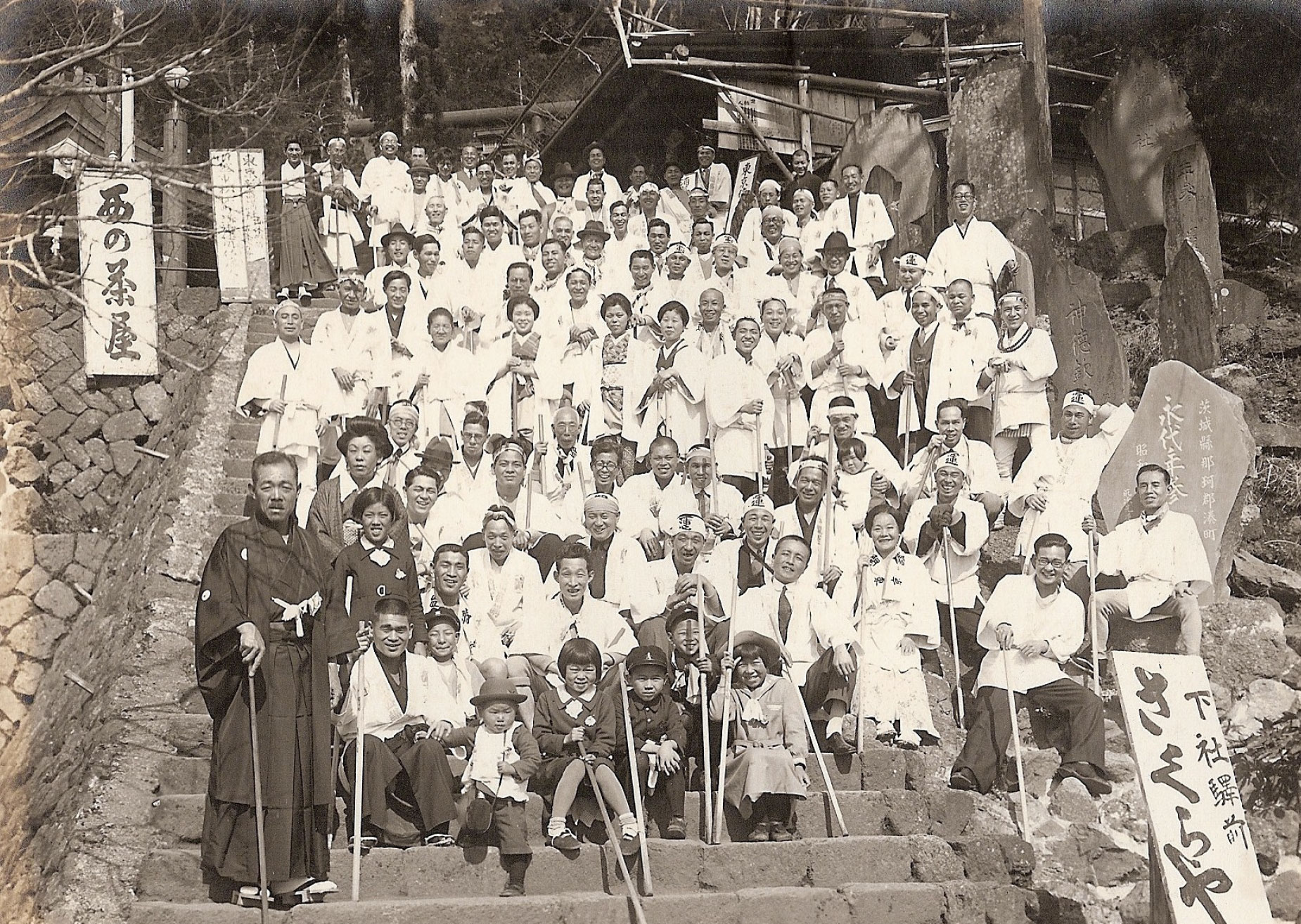
A photo taken during a company trip. The founder, Rihachi Sumita, is on the bottom left.
Now, the company has grown beyond the field of glass to become an expert in the field of optics.
As a new challenge, it is also expanding into the medical field.
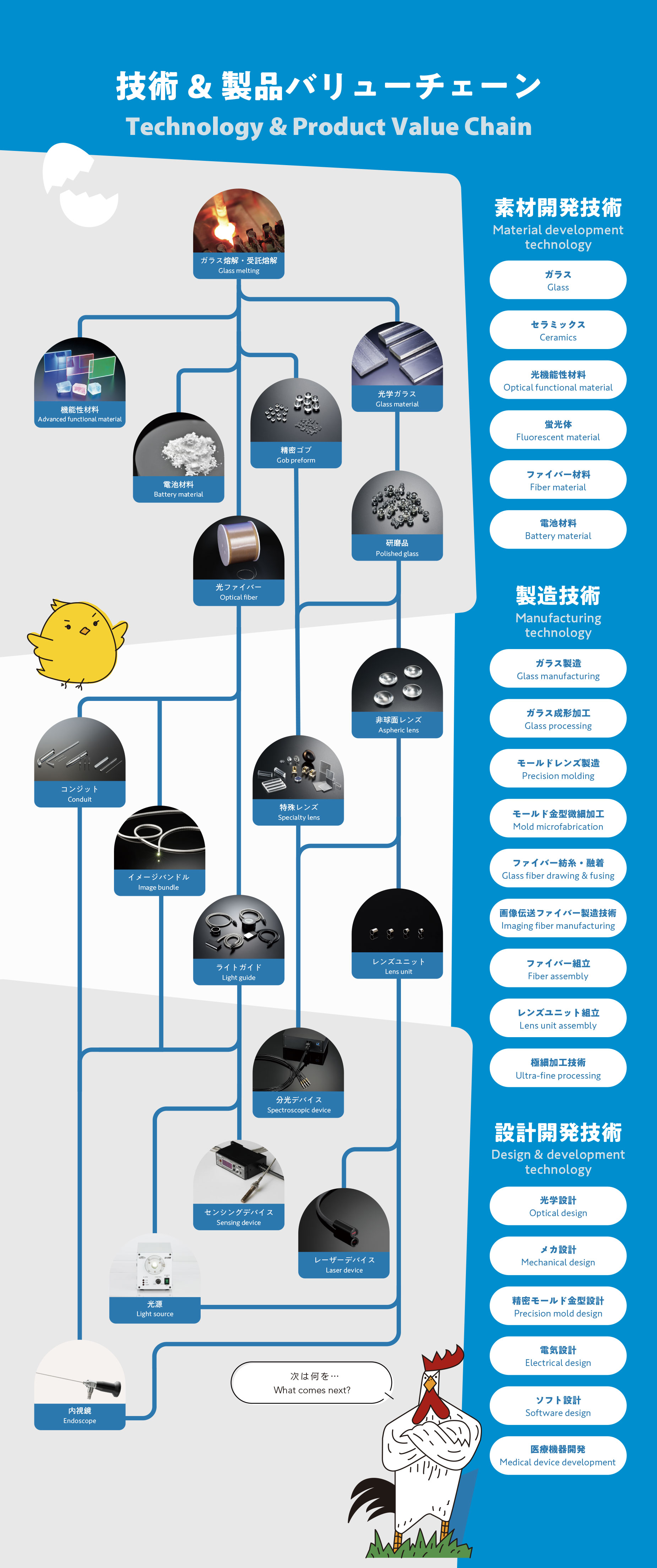
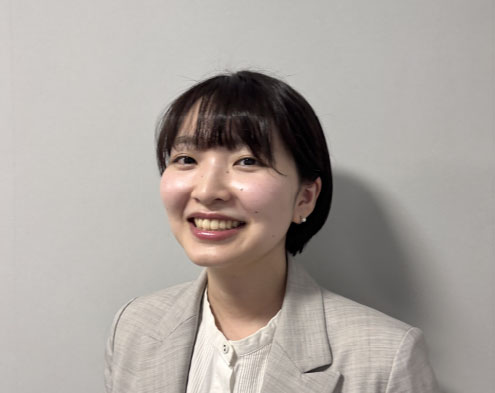
Seeing the endoscope I helped develop being used in actual surgery was truly moving. I aim to continue contributing to society through the medical field.
*Percentage of new graduates hired since 2018 who have continued working for more than three years
According to a survey by the Ministry of Health, Labour and Welfare, the retention rate of new graduates within three years in 2023
is 67.7% for university graduates and 63% for high school graduates.
SUMITA is at a fairly high level.
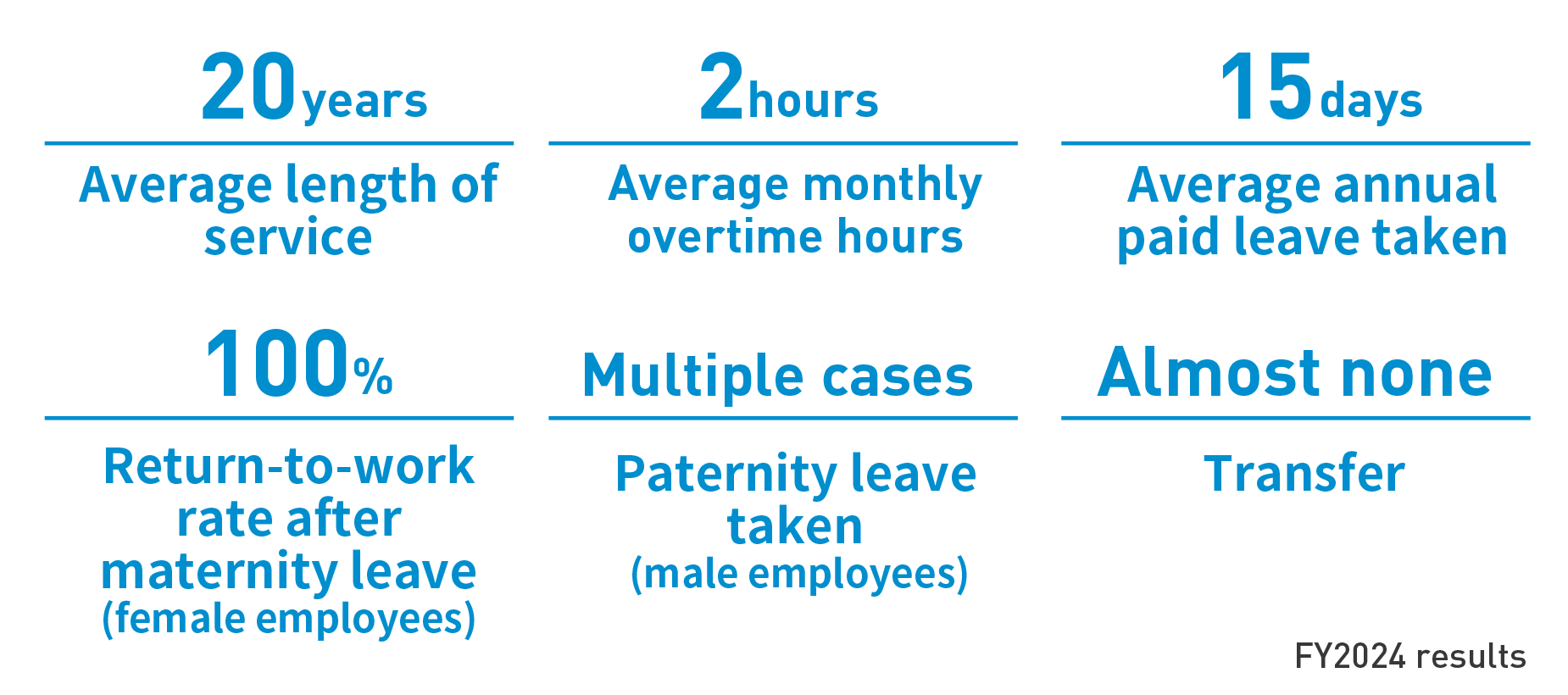
Instead of being confined to narrow cages in a poultry farm,
chickens like ‘Naze-tarou’ roam freely in a spacious yard.
This free-range chicken symbolises SUMITA's company culture.
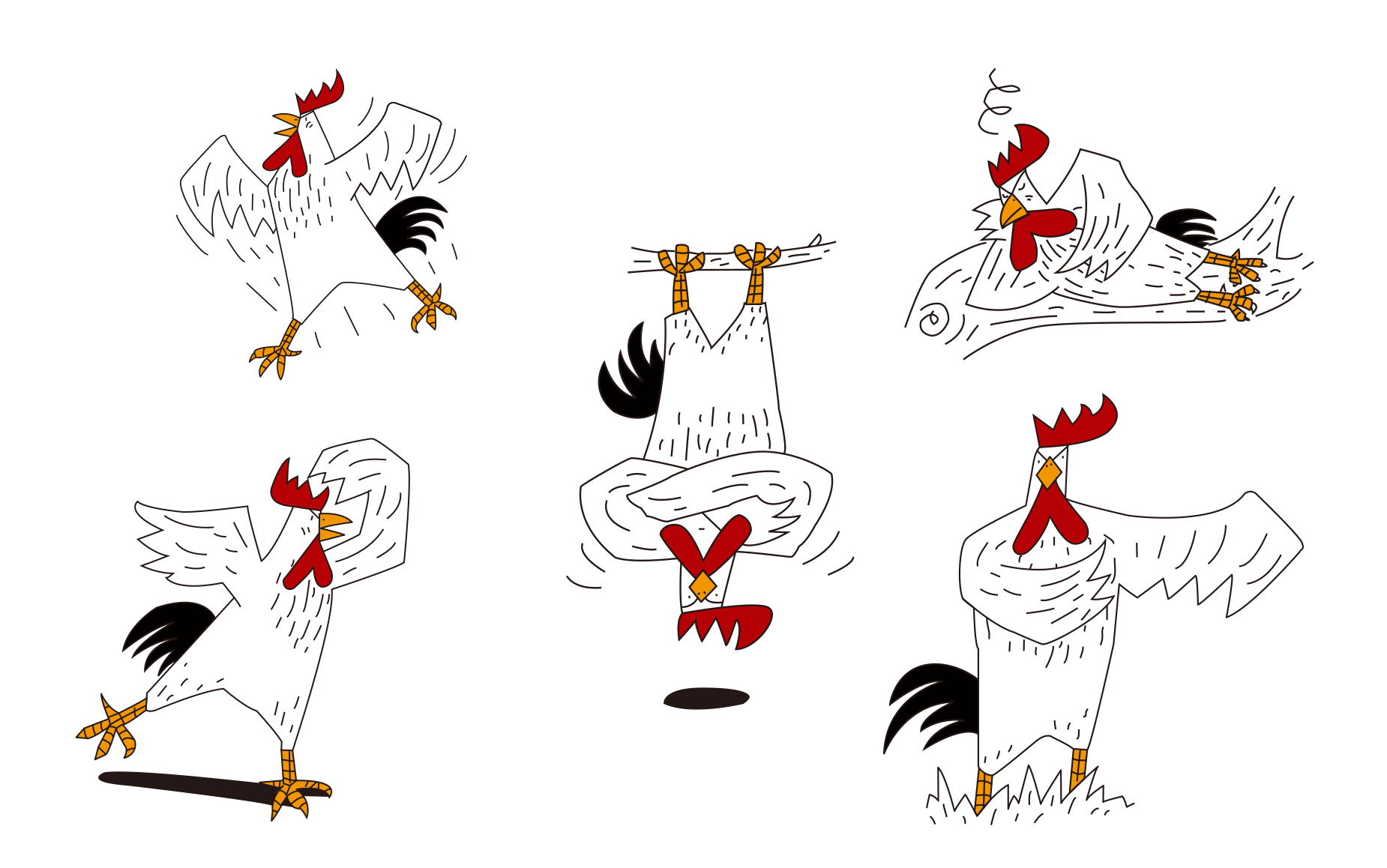
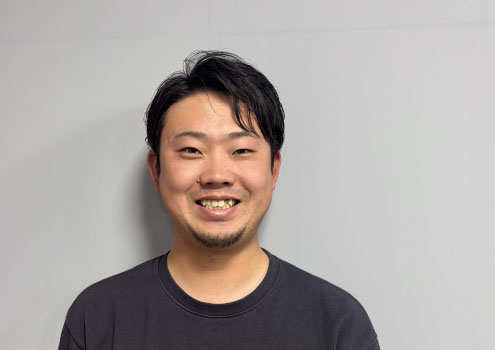
I believe this is a company where enjoyment grows in proportion to curiosity.
Overseas sales account for half of total sales, and this ratio is increasing year by year.
SUMITA's technological capabilities are highly regarded both domestically and internationally.
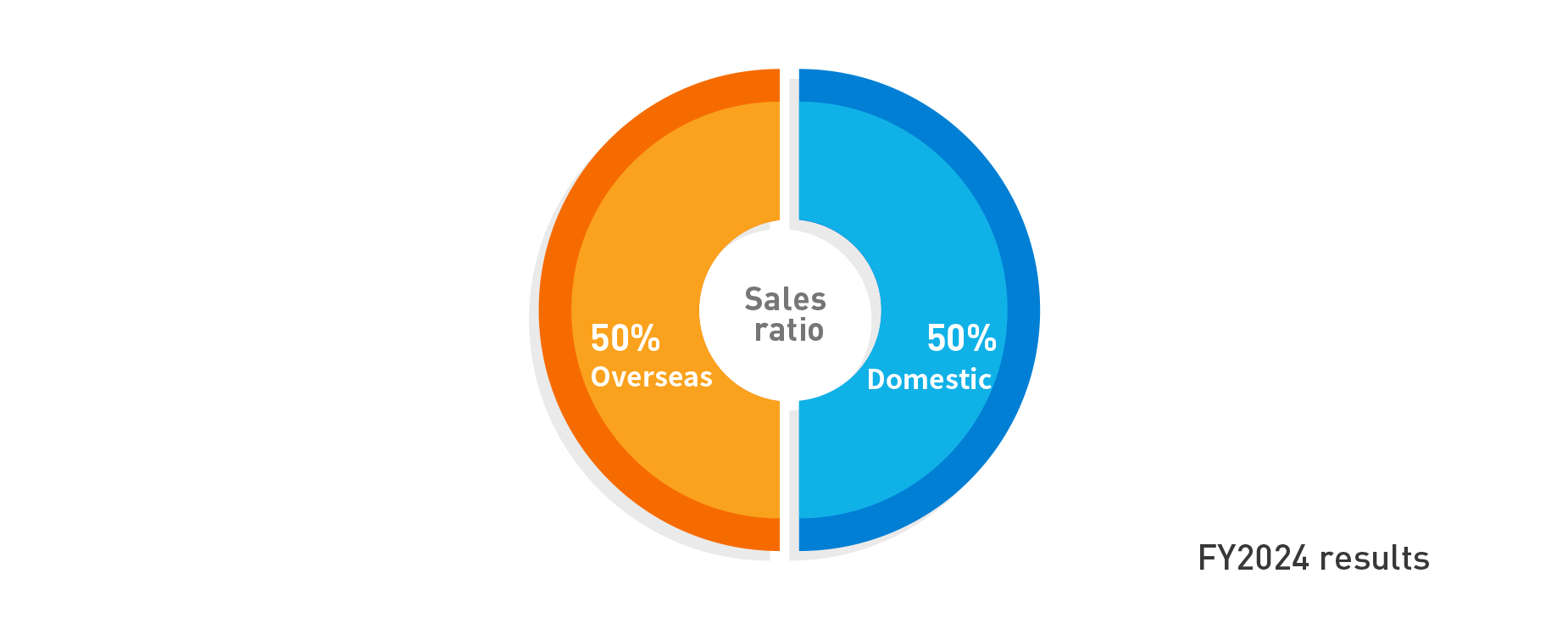
The company's business areas span Europe, the United States, East Asia, and more.
SUMITA's strength lies in its unique products, which are unmatched anywhere in the world.
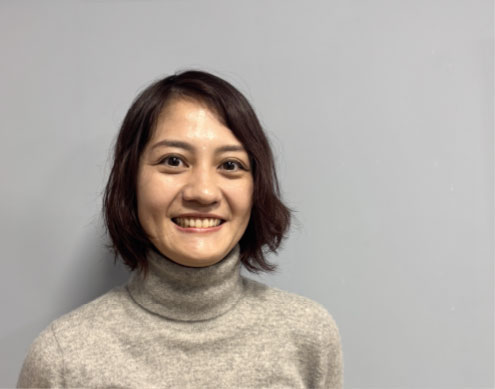
The power of Made in Japan is still strong! Through SUMITA's products, we hope to convey this message to people around the world.
"When you work,
enjoy it like a hobby.
When you play, be serious
like you're working."
EmployeeInterview
-
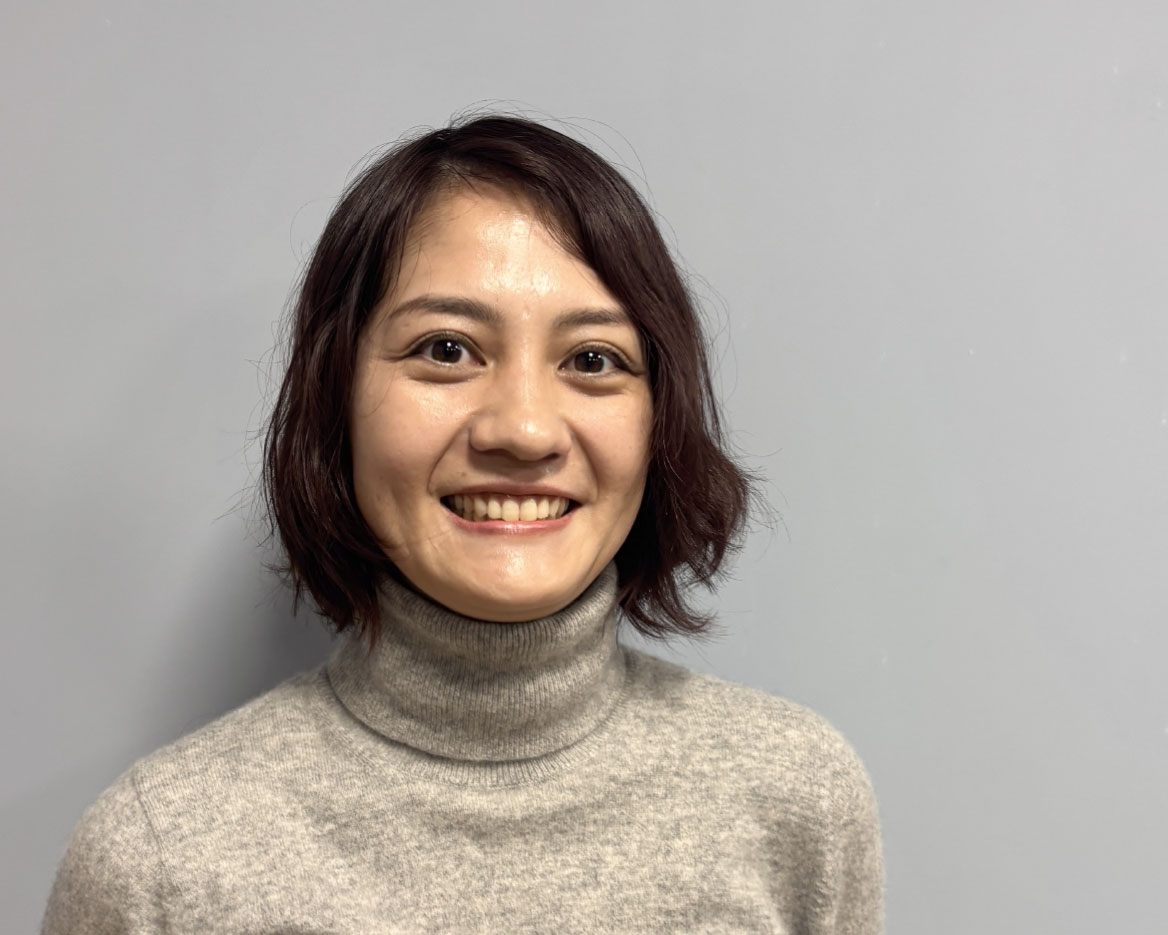
Sales Division
The joy of engaging with the world through unique products
-
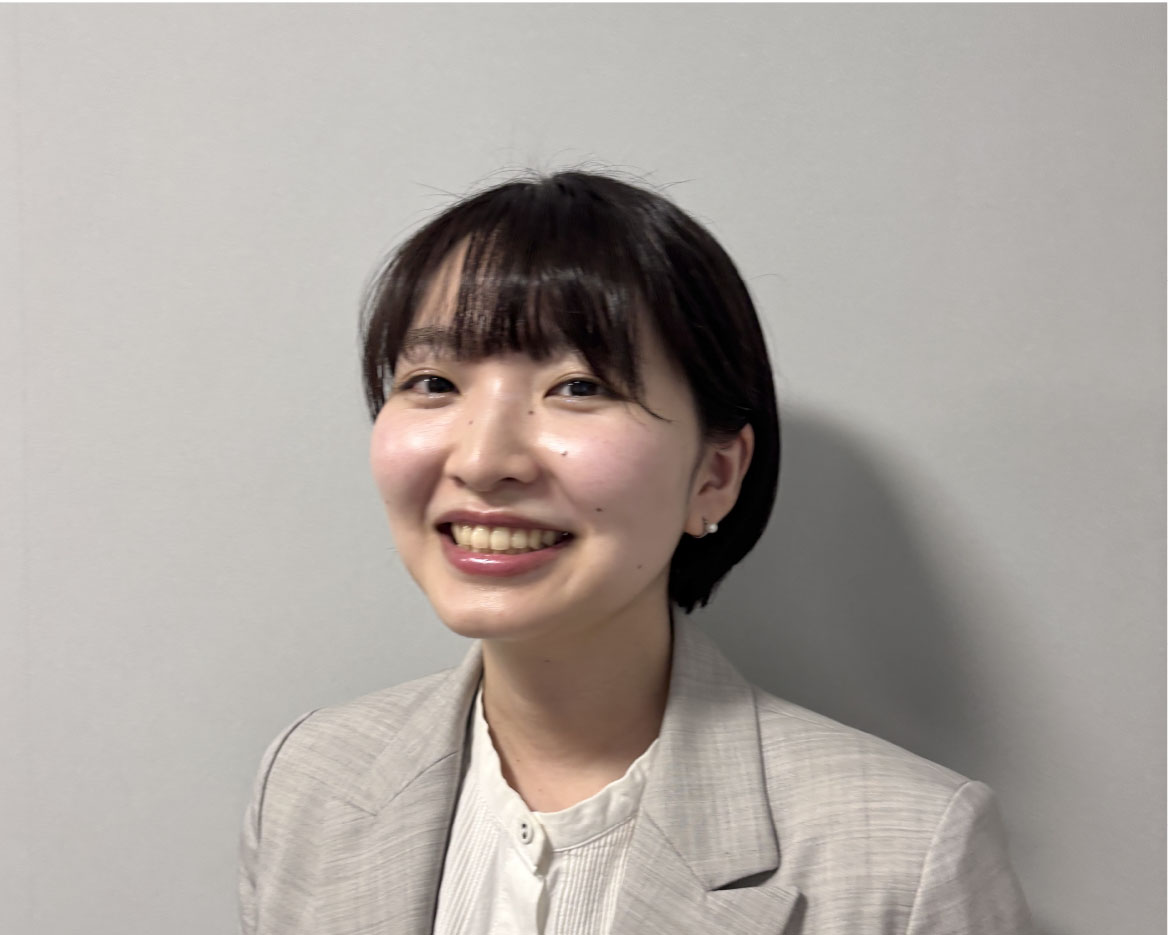
Sales Division, Second Sales Department
The joy of contributing to society through healthcare
-
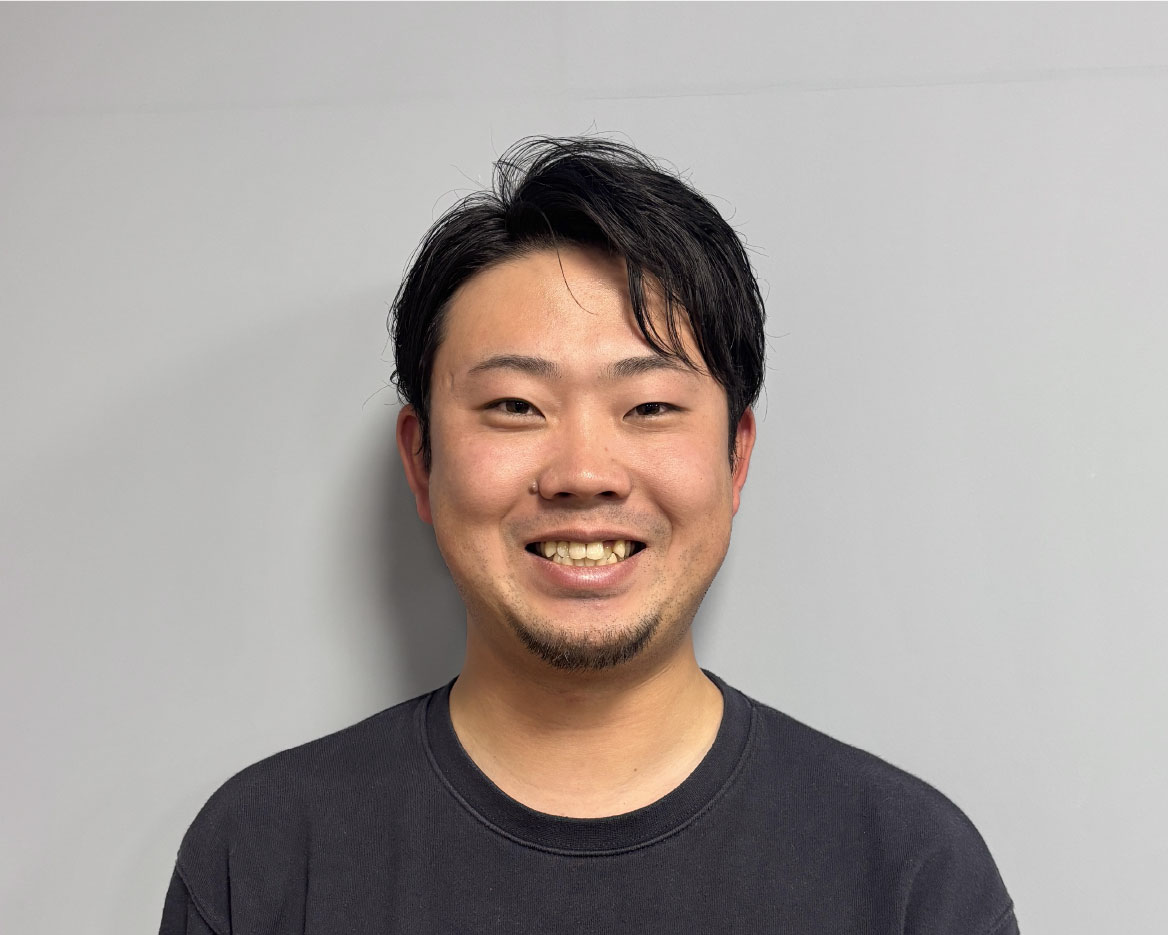
Optical Systems Development Department
Optical Products Technology Development SectionEvery day is a challenge
where I can feel myself growing -
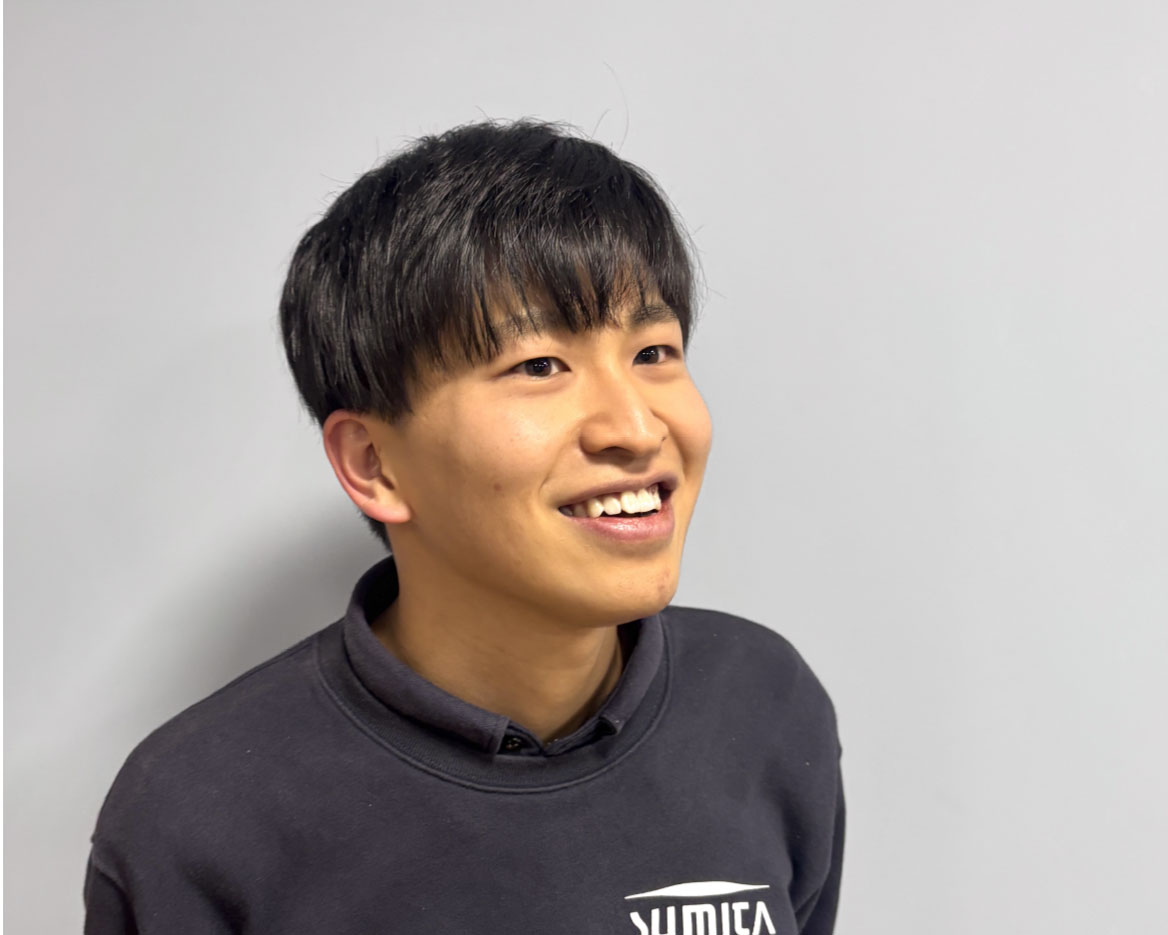
Materials Development Department
Open Company
Experience
SUMITA Open Company
- Flexible schedule
- Individual response
- Roundtable discussion/experience
- Friends welcome
- Transportation expenses provided
- Casual attire OK
Participant's Day
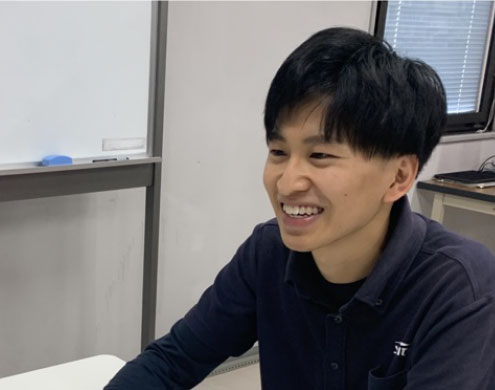
Material Development Department
W.Y.
I was nervous before it started because it was an individual session, but I had many opportunities to talk with the employees, which helped me relax quickly.
For a detailed interview, please click here.
Open Company Course Comparison
| Location | Introduction | Roundtable Discussion | Work Experience | |
|---|---|---|---|---|
| Online | Online | ○ | - | - |
| Urawa 2 hours | Urawa | ○ | ○ | - |
| Urawa 1 day | Urawa | ○ | ○ | Half day |
| Urawa 2 days | Urawa | ○ | ○ | 1.5 days |
| Fukushima 2 hours | Fukushima | ○ | ○ | - |
| Fukushima 1 day | Fukushima | ○ | ○ | Half day |
| Fukushima 2 days | Fukushima | ○ | ○ | 1.5 days |
Company Profile
- Work Location
- Urawa Headquarters
4-7-25 Harigaya, Urawa-ku, Saitama-shi, Saitama
Tajima Tabahara Factory
174-1 Tajima Tabahara, Minamiaizu-machi, Minamiaizu-gun, Fukushima - Working Hours
- 8:30 a.m. to 5:00 p.m. (65-minute break)
- Holidays and Leave
- 125 days off per year, annual paid leave, special leave,
childcare/caregiving leave system, childcare shortened working hours system, etc. - Allowances
- Housing allowance, commuting allowance, position allowance, overtime allowance, etc.
- Welfare Benefits
- Retirement allowance system, corporate defined contribution pension system, defined benefit pension system, maternity leave, childcare leave, single-person dormitory (if conditions are met), recreational facilities, subsidised use of affiliated gyms

Sales Division
N.K.
The joy of engaging with the world through unique products
What prompted you to join Sumita Optics?
I was looking for a new job because I wanted to work for a manufacturer that handles unique products. I was introduced to Sumita Optics, and since it was close to my home, which was convenient for me as a parent, I decided to apply for the position. The interview atmosphere was relaxed, and before I knew it, we had been chatting for about two hours (laughs), which left a strong impression on me.
Why did you want to work for a manufacturer that handles unique products?
If you believe that there are things only your company can create, wouldn't that give you pride in your work and motivation to work? The company I joined as a new graduate was also a manufacturer. I changed jobs due to my husband's transfer and also worked as a translator and English teacher, but I love the feeling of creating products with my own hands at a manufacturer. Even in the same field of manufacturing, products that cannot be replaced by others are more fulfilling and stronger in the market. Sumita has always followed this philosophy, and I think it suits me very well.
What is your current job description?
I am in overseas sales. Most of our products are made to order, so it's not a sales job where you sell existing products. The role of Sumita's sales team is to act as a supporter of manufacturing, standing between customers and in-house developers and factories to adjust product specifications. As part of the sales team, I am in charge of overseas sales, mainly focusing on customers in the United States and Europe.
What kinds of products are selling well overseas?
In my area of responsibility, Sumita has some special types of glass that other companies don't make, and we get a lot of inquiries about those. I guess no one else in the world is selling them (laughs). We also have glass that is used as an industry standard, and overseas customers purchase that as well.
What are your future goals?
There's no internal competition or quotas, but lately, the overseas sales ratio has been increasing to 51% or 52%, and I'm doing a fist pump. (laughs) Our immediate goal is to strengthen our overseas team and increase the sales ratio even further!
Personally, I would like to become a role model for women in sales.
I am enjoying raising my children while working and travelling on business!
I am grateful for the workplace and environment that makes this possible, and I want to make it even more conducive to achieving this goal.
To job seekers:
When you think of sales at a manufacturer, you might imagine it's a field for science majors, but lately, there are more women and liberal arts majors in sales as well.
Whether you're a science or liberal arts major, if you can think flexibly and enjoy communication, you'll be fine.
Science majors will have to study after joining the company anyway, and liberal arts majors have their own strengths!
As for English, you can study it after joining the company. Why not join us in overseas sales?

Sales Division, Second Sales Department
Y.K.
The joy of contributing to society through healthcare
What led you to join Sumita Optical?
I was working in production management at a food manufacturer, but I decided to start looking for a new job to improve my work-life balance. I searched for ‘Saitama City medical equipment’ online and found Sumita Optical Glass's inquiry form, which is how I got in touch with them.
Why did you search for ‘Saitama City’?
First, I wanted a place that was easy to commute to from home (laughs). Commuting is one thing, but the Omiya area is also convenient for living and shopping. Plus, it has a more relaxed atmosphere than central Tokyo, which is just right.
Was ‘medical devices’ also a keyword?
Yes. Since I majored in life sciences in university, I have many friends working in the medical field, and I felt it was an attractive industry. I also wanted to utilise what I learned in university in some way.
What is your current job?
I work in sales. My previous job was in back office, so I wanted to work directly with customers and applied for a sales position.
Are you involved in medical devices, which was a keyword when you changed jobs?
Yes. Our company manufactures key parts for endoscopes and, as a manufacturing partner for medical device manufacturers, we have the opportunity to be involved in the development of new endoscopes. I participate in projects as a sales representative.
What are your specific duties in that role?
My duties involve communicating with customers.
When we receive requests for product development from customers such as medical manufacturers and university hospitals, sales staff gather detailed information to propose solutions that meet the customer's requirements plus additional features, such as intended use, usage environment, and sterilisation methods. We then share this information with the design team, who proceed with drawing creation and prototyping.
In addition to providing estimates, accepting orders, and responding to delivery requests, sales staff also support customers with medical device-specific tests such as electrical safety tests.
Another important task is to act as a liaison between customers and the company's design and manufacturing departments to ensure that each process leading up to productisation runs smoothly. Medical devices typically take two to three years to reach the market. The projects I am involved in are also long-term, and everyone involved is working hard on them.
Please tell us about Sumita's efforts in the field of medical devices.
We are working on the manufacture of thin-diameter endoscopes that utilise Sumita's ‘ultra-small, ultra-thin technology.’ We share the desire of those involved in medical care to ‘minimise the pain and suffering of patients as much as possible,’ and we have achieved the manufacture of endoscopes with a diameter of less than 1 mm by pursuing the limits of smallness and thinness. If you were to undergo surgery, you would want it to be as minimally invasive as possible, with small incisions and a quick recovery, right? In the medical field, there is a growing demand for ‘minimally invasive treatment’ aimed at reducing the burden during treatment and improving quality of life (QOL) after treatment. We also aim to contribute to minimally invasive treatment through the manufacture of ultra-thin endoscopes.
When do you feel a sense of fulfillment?
The moment that stands out the most is when I saw a video at a medical conference of an endoscope I helped develop being used in an actual surgery. It was a moment when I truly felt that my work, though indirect, ultimately contributes to helping someone recover from their illness.
What are your future goals?
First, I want to strive to achieve my sales targets. Regarding the medical projects discussed earlier, I aspire to become a project manager capable of handling medical projects from development to productisation and mass production in the future. I will continue to study and grow!
To all job seekers
Sales at Sumita involves daily communication with customers and colleagues, and working closely with design and development, so you can feel a sense of fulfilment in creating products. If you are interested, please feel free to come and visit our company!

Optical Systems Development Department
Optical Products Technology Development Section
Mr. K.S.
Every day is a challenge
where I can feel myself growing
What made you join Sumita Optical?
After graduating from university, I moved to Minamiaizu Town in Fukushima Prefecture and worked on regional revitalisation projects.
Just before my previous job ended, I told people around me that I wanted to continue living in Minamiaizu Town and was looking for work in the area. That's when someone introduced me to Sumita Optical Glass.
Please tell us about the charm of Minamiaizu Town.
It's a quiet town rich in nature, but even for someone like me who moved here, the connections with people are deep and warm... That's what I like about it! It has a charm that's different from big cities or well-known tourist spots.
What do you mean by ‘a charm different from well-known tourist spots’?
Minamiaizu Town is also a tourist spot, but it has a different atmosphere from famous tourist spots that have become a bit commercialised. For example, if there are always lots of tourists, local shops tend to cater more to tourists, right? Minami-Aizu Town strikes the right balance between being a tourist destination and a place to live.
While there are tourists, there are also local shops with a unique charm where everyone can enjoy themselves together, and there’s that warm sense of community among the locals. As someone who moved here, when I mentioned my hobbies to someone, they immediately introduced me to others with the same interests, and we became friends. That warmth is truly wonderful.
What is your current job description?
I am working in the Optical Systems Development Department, assisting my seniors while studying and advancing development and design work.
It is a completely science-oriented workplace, but in university, I majored in a completely different field, the humanities.
However, since I was going to do it anyway, I wanted to challenge myself in a field completely different from what I had done before.
Additionally, I mentioned that I enjoy communicating with people, and as a result, I was assigned to the Optical Systems Development Department.
How was working in a field outside your specialisation?
It was so different from what I had done before that at first, I couldn't even understand the words my colleagues were using, and conversations didn't make sense. (This was in a work context. Casual conversations are fine!)
The first year was like that, but this year, my second year, conversations are starting to make sense. (Laughs)
As my knowledge grows and I gain more common language with the team, I feel like I’m constantly updating myself and directly experiencing growth, which gives me a sense of fulfilment.
Even in my first year when I couldn’t communicate (laughs), and even now in my second year, when I ask questions or seek advice that might be off-base, everyone answers me very kindly, so even as a beginner, I’m managing to get by. It’s a workplace where it’s easy to learn. Everyone at Tajima is very kind and warm-hearted (the same goes for the people in Urawa!).
I had the impression that development was something you did alone, but since it's about creating new things, you need advice and wisdom from various people. Surprisingly, communication with other departments and various people is necessary, and I think that suits me well.
What are your future goals?
To see the products I've worked on come to fruition. I'd be happy if they sold well and benefited people and society.
To job seekers:
When you hear ‘optical glass industry,’ you might think it's highly specialised and feel intimidated.
Even I, who joined from a liberal arts background, was filled with anxiety, but Sumita is a company where you can grow while learning.
Through communication with others, you'll constantly encounter new ‘things and ideas.’
Like our company culture of ‘freely, flexibly, and gracefully,’ I think the more curious you are, the more fun you'll have here!

Materials Development Department
Y.W.
Open Company
Experience
What made you join Sumita Optics?
I majored in glass materials development at university, and I saw the company mentioned in an online article, so I participated in the Open Company event.
How was the Open Company event?
In practical terms, I came from Ehime, so it was helpful that my travel expenses were covered.
It was also valuable to hear real stories from industry professionals, and by actually making and measuring glass, I could imagine what it would be like to work there.
But the most important thing was understanding the company's atmosphere.
It's was relaxed; the people inside the company embody the company's slogan, ‘Act Freely, Think Flexibly and Stay Resilient.’
To put it bluntly, everyone doesn't treat ‘work’ like ‘work.’ Rather, it feels like a hobby or something they enjoy doing, and that freedom and charm are appealing.
Everyone was considerate of me as a student and took care of me in various ways. Everyone was kind.
The warmth of the people was also appealing.
I decided to join the company because I wanted to enjoy my work in the same way, with the same enthusiasm and passion as the people around me.
How is it actually working there?
It’s just as I imagined—a free environment. Not only the atmosphere, but the actual work as well.
“If you find something you want to do, go for it!”
They really let me do what I want to do.
I feel the company's slogan, ‘Act Freely, Think Flexibly and Stay Resilient’ every day.
Also, the training period seems shorter than at other companies (about six months).
When I talk to my lab mates who work at other glass-related companies, some of them have to work in the factory for a year first...
It's appealing that I can do things right away that I couldn't do until my second year at other companies.
What are your future goals?
Sumita Optical has developed a famous glass material called ‘PHOTARON’
Since it was developed by someone named S at our company, saying ‘Hotaron's S’ is enough for the industry to understand.
My dream is to develop a material that is referred to as ‘○○○○'s W’ in the same way.
To job seekers,
I know you're visiting many companies, but open company events are very informative. Participate as much as possible. I'm still in my first year, but I'm given the freedom to work flexibly and adaptively. Good luck with your job search! I'm cheering for you.
